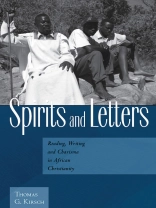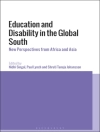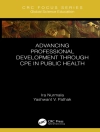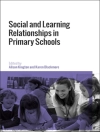Studies of religion have a tendency to conceptualise ‘the Spirit’ and ‘the Letter’ as mutually exclusive and intrinsically antagonistic. However, the history of religions abounds in cases where charismatic leaders deliberately refer to and make use of writings. This book challenges prevailing scholarly notions of the relationship between ‘charisma’ and ‘institution’ by analysing reading and writing practices in contemporary Christianity. Taking up the continuing anthropological interest in Pentecostal-charismatic Christianity, and representing the first book-length treatment of literacy practices among African Christians, this volume explores how church leaders in Zambia refer to the Bible and other religious literature, and how they organise a church bureaucracy in the Pentecostal-charismatic mode. Thus, by examining social processes and conflicts that revolve around the conjunction of Pentecostal-charismatic and literacy practices in Africa, Spirits and Letters reconsiders influential conceptual dichotomies in the social sciences and the humanities and is therefore of interest not only to anthropologists but also to scholars working in the fields of African studies, religious studies, and the sociology of religion.
Jadual kandungan
List of Illustrations
Acknowledgements
Notes on Language
Introduction
- Charisma – Institution
- Charisma/Spirit/Orality – Institution/Letter/Literacy
- African Literate Religion
- ‘Spirit’ and ‘Letter’ in African Christianity
- Examining Literacy Practices
- The Fieldwork
- Outline of the Book
PART I: HISTORIES AND ETHNOGRAPHIES
Chapter 1. Colonial Literacies
- Mission, School and Printing Press
- Steps towards Secularization
- Counterforce in Writing
- What is a School?
- Resistance and Non-religious Literacies
- Colonial Bureaucracy
- Evangelists as Administrators
Chapter 2. Passages, Configurations, Traces
- At the Edge of the Road
- On the Road
- Early Evangelisations
- Christianity in the 1990s
- Religious Intersections
Chapter 3. Schooled Literacy, Schooled Religion
PART II: LITERATE RELIGION
- Enrolment in School
- After the Ringing of the Bell
- Recitations of Syllabi
- Experiences with Mission Schools
- Contemporary Religious Education
Chapter 4. Literate Cultures in a Material World
- The Bible as an Everyday Object
- Literacy in Times of Paper Shortage
- Getting Hold of Christian Publications
- Publications as Property
Chapter 5. Indices to the Scriptural
- Bible Talks
- Programmatic Visibility
- References to the Book
Chapter 6. The Fringes of Christianity
- Blurrings and Criteria
- Turning Letters Upside Down
Chapter 7. Thoughts about ‘Religions of the Book’
- Book People
- Scriptural Inerrancy and Authority
- Canonization and the Bridging of Realms
PART III: WAYS OF READING
Chapter 8. Texts, Readers, Spirit
- Bibles, Versions, Origins
- Pamphlets and Eclecticism
- Selections and Combinations
- Private Readings, Implicit Influences
- Bible Studies
Chapter 9. Evanescence and the Necessity of Intermediation
- The Impossibility of Storing the Holy Spirit
- Objects, Bodies and Spiritual Evanescence
Chapter 10. Setting Texts in Motion
- Deciphering and Preaching
- Sediments of the Spirit
Chapter 11. Missions in Writing
- Literacy Networking
- The Jehovah’s Witnesses: Questions and Answers
- The New Apostolic Church: Mediation via Circulars
- Supplements as ‘Obligatory Passage Points’
- Enablement through Denominational Publications
Chapter 12. Enablements to Literacy
- Rumination and Scholarship
- Scripture and Enablement
- Enabling Supplements
PART IV: BUREAUCRACY IN THE PENTECOSTAL-CHARISMATIC MODE
Chapter 13. Offices and the Dispersion of Charisma
- Bureaucracy as Social Practice
- Organizational Formalization as a Founding Myth
- Dispersing Charisma, Allocating Offices
- Charisma, Hierarchies, Variations
- Ignorance and Mutual Recognition
Chapter 14. Positions of Writers, Positions in Writings
- Certifications of Authority
- God’s Secretaries
- Identifications and Registries
- Fixing Polyvalent Rites of Passage
- Portrayals of the Momentary
Chapter 15. Outlines for the Future, Documents of the Immediate
- Agendas as Revelations
- Reports of the Unpredictable
- Agendas, Reports, and the Holy Spirit
- Re-spiritualizing Bureaucracy
Chapter 16. Bureaucracy In-Between
- Flows and Facades
- African Christianity and the State
- Formalizing Social Relations
- Imagining the State
- Legacies and Isomorphism
- Presentations and Concealments
- Bureaucracy as Pentecostal-charismatic Empowerment
Chapter 17. Epilogue
Bibliography
Index
Mengenai Pengarang
Thomas G. Kirsch is professor for Social and Cultural Anthropology at the University of Konstanz. He received his Ph.D. in anthropology from the European University Viadrina in Frankfurt (Oder) in 2002 and taught at the Department of Anthropology and Philosophy in Halle (Saale) and at the Department of Anthropology at Goldsmiths College, University of London, before coming to the University of Konstanz in 2009. Between 1993 and 2001, he conducted extensive ethnographic fieldwork in Zambia. He has published a book on African Christianity in Zambia and articles in some of the major refereed journals for anthropology and sociology in Germany. Other articles were published in the journals American Anthropologist (2004), Visual Anthropology (2006) and American Ethnologist (2007). Since 2003, he has also conducted fieldwork and published on issues of human safety, security and crime prevention in South Africa.












